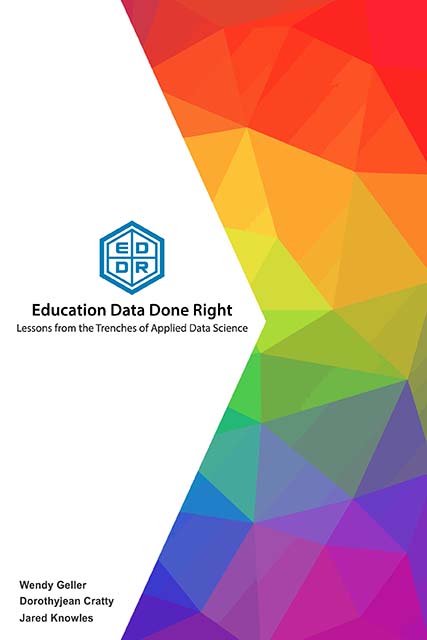What the book means to me and what’s next.
I co-authored a book on education data analysis, Education Data Done Right, with two wonderful people. It has been great to share it with people and hear from so many readers. But one question I’ve gotten from a lot of people, which I wasn’t prepared for, was this good one: Does the book include R code as a way to tackle education data problems?

If I’m known for anything in the education data world it’s my application of R to solve many technical challenges that education agencies face. I’ve been pushing education agencies to adopt R since at least 2012. I’ve trained over two hundred data scientists in education. I wrote one of the first popular tutorials of R for education data analysts and one of the most popular tutorials on how to fit HLM and latent variable models in R. I’ve spent a lot of my professional career helping other education data scientists solve tricky problems. And I’ve long been outspoken about the barriers inside of organizations that make it hard for individual analysts to get the skills they need. So, I’ve had a lot to say on R and how analysts can harness it to get at our biggest challenges for quite some time now.
And so here’s what may surprise the readers of our book, my answer to that common question we’ve been getting: we don’t get into R code at all.
If you’re perplexed, let me explain.
I never felt the need to write a book about these things because technical content on how to use R to solve problem X in the field never seems to be lacking, and always seems to be changing – which doesn’t fit the type of book I’d like to write – my R bootcamp is now out of date, and thankfully so, because so much about R has improved since I wrote it.
Sure, some people could benefit from updating their technical skills from SAS to R. Or others could benefit from learning about a statistical technique they haven’t used. We all, as professionals, have a need to keep improving and adding to our toolbox. In my experience, talking to hundreds of education data analysts over the years, most analysts are perfectly capable of learning the skills they need from existing materials.
In my teaching and my consulting work I have always found, without fail, that the only significant barrier for an individual analyst to learn a new data analysis skill is a lack of interest, motivation, or the time and space to learn.
And, as I ran into this same barrier time and time again, it was easy for me to empathize with data analysts who didn’t see a point in learning a “Shiny” new tool. It wouldn’t increase the chance their work impacted organizational decision making (Rule #1 – no one cares how you made it), and it wouldn’t make their day to day job more enjoyable (because learning something new is frustrating, especially when you have plenty of existing expertise. How many R evangelists are jumping to Julia?)
Then Wendy, DJ and I got to talking. What we observed was a market where analysts with incentives to learn had an abundance of resources that seem to serve them very well. The need was elsewhere, on the topics where there were no resources. So what if we wrote a book that that focused on the frustrating parts of the job that no one writes down, and gave readers tools to tackle those challenges.
What if we wrote a book that gave data scientists the supporting tools they need to create that organizational demand for analytics and incentivized their organizations to make investment in data science skills worthwhile through better, more efficient, and more advanced analytic work?
That was a book I had motivation to write. A book that identified what we saw as the root challenge to increasing analytic capacity in education agencies and tackled it head on. A book that taught the the shadow curriculum of that agency data analysts need. A book about the big issues of data governance and of agency politics. A book that spoke about the craft of agency analytics and gave readers advice on how to streamline and perfect undervalued tasks like data requests and descriptive analysis.
We knew we had to write a book that addressed those topics because it’s the book people need. And people have let us know that was exactly the case!
It was a tall order, which is why we’re calling this book Volume 1. There’s a lot more to come.

